Retired Ambassador Edward Djerejian (born in 1939) is one of the United States’ most distinguished and experienced diplomats - he has worked with the administrations of 8 U.S. presidents.
In 1985 Ambassador Djerejian was assigned to the White House as Special Assistant to the President Reagan and Deputy Press Secretary for Foreign Affairs. In 1981-1984 Djerejian was the Deputy Chief of the U.S. mission to the Kingdom of Jordan. In 1988-1991 he was the U.S. Ambassador to Syria and built good personal relations with President Hafez al-Assad.
In 1991-1993 Djerejian was the Assistant Secretary of State for Near Eastern Affairs. In 1993-1994 he was the U.S. Ambassador to Israel.
Edward Djerejian was Director of the James A. Baker III Institute for Public Policy at Rice University from 1994 to 2022.
On June 8, 2024 Edward Djerejian gave a commencement speech at the American University of Armenia. He talked to Mediamax before leaving Armenia.
- In our 2017 interview, you said: “No matter what the international environment is, Armenia should still have a goal of situating itself in a position where it conduct policies that promote its national interest, both north, south, east, west. This should be a constant of Armenian policy because of its geographical location. And geography is destiny in politics, in many ways.” For three decades, Armenia was trying to bridge the interests of West and Russia, but today it is becoming, or has already become a place where great powers compete. Do you think this is something that could be changed?
It is interesting that you referred to the statement that I made in our earlier interview many years back. But this strategy, I believe, is still the valid for Armenia. Armenia is a small and landlocked country in a dangerous neighborhood. Therefore, it has to work for peace and security in the first instance in order to develop. The good news since our last interview is that Armenia has proven to be following the democratic path of development. Democracy is very important, and it has to be developed internally, strengthened, and it should be done in a way in which the largest number of Armenian people can benefit from economic prosperity, personal security and the basic services that a functioning state can give its people.
On top of that, Armenia has to develop a foreign policy, which is really 360 degrees. In other words, it has to develop functioning relationships within the region and its neighborhood. 3+3 format - bilaterally with Azerbaijan, Iran and Georgia and then beyond - Turkey, Iran and Russia. 3+3 is still very important for Armenia to develop a viable foreign policy.
Armenia is entering into a more multipolar world. The bipolar world (USSR and the United States) finished in 1991, but now even the preeminence of America is not what it used to be in the early 90s, and the world is going into a more multipolar stance. So Armenia has to position itself within this new geopolitical world, and that means prioritizing relationships with important countries such as China, India, the Gulf countries.
Judging from your answer, I suppose you do not believe that some kind of “strategic turnover” will take place in Armenian foreign policy, when Armenia will cut all the ties with Russia and turn to the West.
Armenia should not fall in the trap of having a foreign policy that is dependent on one country or one block against another. Armenia can’t afford that. Armenia has to develop relations with all these countries, as I mentioned, but it then has to prioritize each one is different.
If I understand correctly, over 80% of Armenia’s natural gas is imported from Russia, nuclear fuel is imported from Russia. Armenia is getting wheat from Russia. So Armenia can’t neglect those realities of maintaining a functional working relationship with Russia. So it would be wrongheaded for Armenia to try to venture off and identify itself with, for example, the United States versus Russia. European Union, United States, Russia, Iran and Turkey - these are all very important relationships, but each one has its own different importance for Armenia.
But do you think this balance is possible, given the current tense relations between Russia and the West?
I really do not think it has to be a zero sum game where Armenia has a very strong reference to one country over the other. But again, Armenia cannot afford but to have relationships with all of its immediate regional neighbors and the important outside powers. And the important thing is that Armenia has to build up its democracy internally. Democratic elections is a very positive factor, but it has to build up that democracy economically. The economy is doing relatively well, but it has to build up its economic strength, grow its educational institutions.
I just gave the commencement address at the American University of Armenia, and I was impressed by the fields that the graduate students are going into, be it high tech, IT, economics, business, etc. And I saw a new generation of Armenians coming into these fields and then be going into the private sector, hopefully into the public sector also. But the education is critical, because Armenia’s best resource is brain power.
Given what we saw and what happened to Artsakh, Armenia has to build up its defense capabilities and not to become a country that is seeking any external enemies or conquests, but to become strong enough internally that anyone who wants to take military action against Armenia has to think at least twice. The porcupine is an animal that has very severe needles. Armenia has to become a “porcupine” so that you will be able to effectively deter outside military ambitions.
Do you think that Western support could be critical for building this deterrence?
Western support could be a major factor in helping Armenia develop the “porcupine.” But I do not think Armenia should build any military deterrence strategy that is too dependent on any country or bloc, be it the United States, Europe, Russia, Iran, to come and to defend Armenia in case there is another military conflict. Armenia has to diversify its sources that will build up its military deterrence. I know there is a new relationship emerging on defense matters with India, for example. All these weapon systems have to be interoperable - you have to do it in an intelligent way. But building up Armenia’s military deterrence is a key factor, given the experiences of 2020 and what happened to Artsakh.
Sometimes it feels like if Turkey and Azerbaijan decide to “squeeze” Armenia, they could do it easily, and no one can help Armenia. Do you think that this is a scenario that we should keep in mind?
You have to prepare for the worst scenario. That’s the first thing - Armenia has to prepare for the worst scenario without ruining its economy. It should not build up excessive defense force at the expense of its economy. But, you know, there is a saying, ‘God helps those who help themselves.’ And Armenia should be in a position where it will be able to help itself.
Was the 2020 war unavoidable in some sense? In 2017 interview you said: “We should have no illusions - Azerbaijan is a wealthy country, and its arms purchases should make anyone sitting in Yerevan very concerned”. And three years later the war broke. Does this mean that people in Yerevan, perhaps, were concerned, but still they did not believe that this could really happen?
First of all, I think it could have been avoided. I made a speech many years ago in the United States, in which I said Armenia’s negotiating position is very strong vis a vis Azerbaijan, because it has occupied seven districts of Azeri territory, and those are incredibly important bargaining chips that Armenia could use in negotiations. The other thing I said back then is that Azerbaijan will have the financial means to build up its military and may be in a better position to win the next war. It could have been avoided and Armenia’s past administration should have seized the opportunity and took the initiative to negotiate while it had a strong hand. Now it does not have a strong hand. The political landscape has obviously shifted with Azerbaijan’s takeover of Artsakh. That has changed the geopolitical landscape in the South Caucasus.
You have to have legitimately recognized borders in order to have peace and stability. If you have disputed borders, then you have a problem that can explode in your face at any given time. We have seen that in Cyprus, in Taiwan, we see that in Kashmir, in Western Sahara. So this is a moment to demarcate borders between Armenia and Azerbaijan and move to a peace negotiations that will result in just peace between those two countries. Now is the time to do that.
But even after winning the 2020 war and conducting the ethnic cleansing of Artsakh, there are no signs that Azerbaijani president is ready to stop. They are now actively promoting so called “Community of Western Azerbaijan”, which is obviously supported by the government. They call “Western Azerbaijan” what today’s Armenia is. Aliyev is claiming that no peace agreement is possible without changing the current Constitution of Armenia, which he says contains territorial claims toward Azerbaijan.
This rhetoric by Aliyev is indeed very troubling. But let’s put it this way - if Armenia and Azerbaijan do not come to an agreement on the bilateral border now, then this rhetoric on this part, whether it is just propaganda, he really means it or not, but it’d be more dangerous if Armenia and Azerbaijan did not come to a peace treaty with the delimited borders, because then Aliyev could easily use that excuse. So whether or not one believes what he says is real or propaganda, get on with a bilateral delimitation of borders and the peace treaty, and then build up your defense, so that he would have to think twice if he wanted to do anything more. One of my bosses was President Ronald Reagan, and he said – “trust, but verify”.
Ara Tadevosyan talked to Edward Djerejian.
















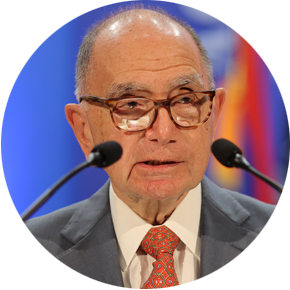
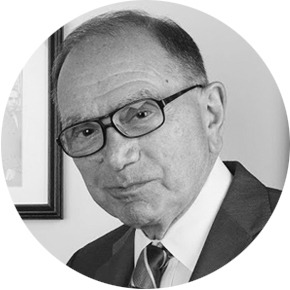
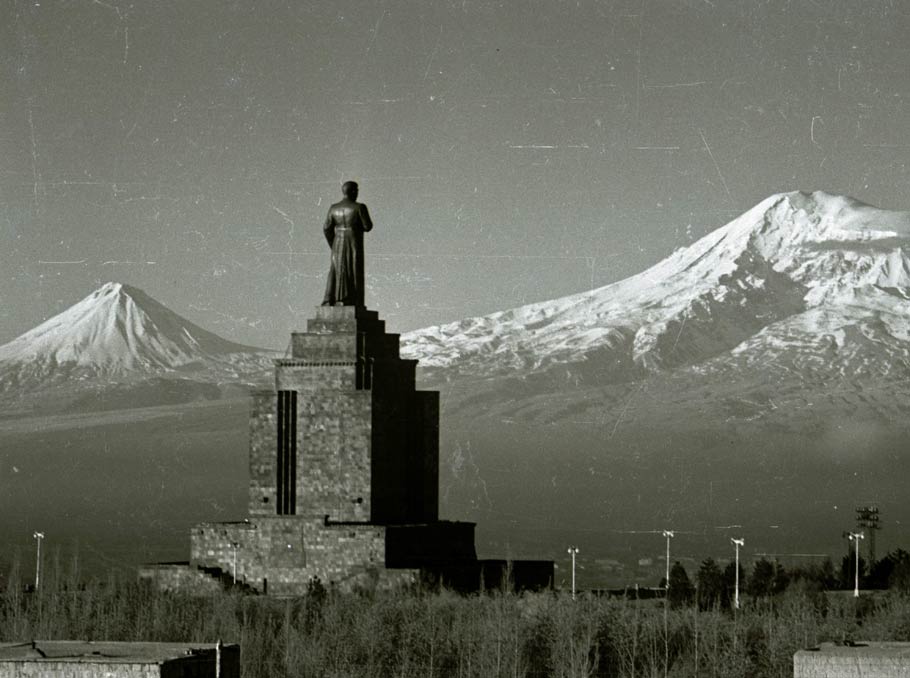
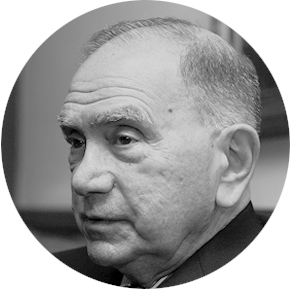



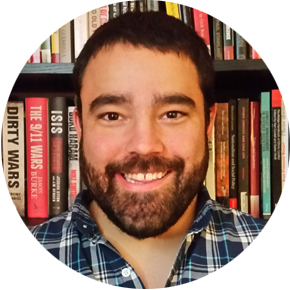






Comments
Dear visitors, You can place your opinion on the material using your Facebook account. Please, be polite and follow our simple rules: you are not allowed to make off - topic comments, place advertisements, use abusive and filthy language. The editorial staff reserves the right to moderate and delete comments in case of breach of the rules.